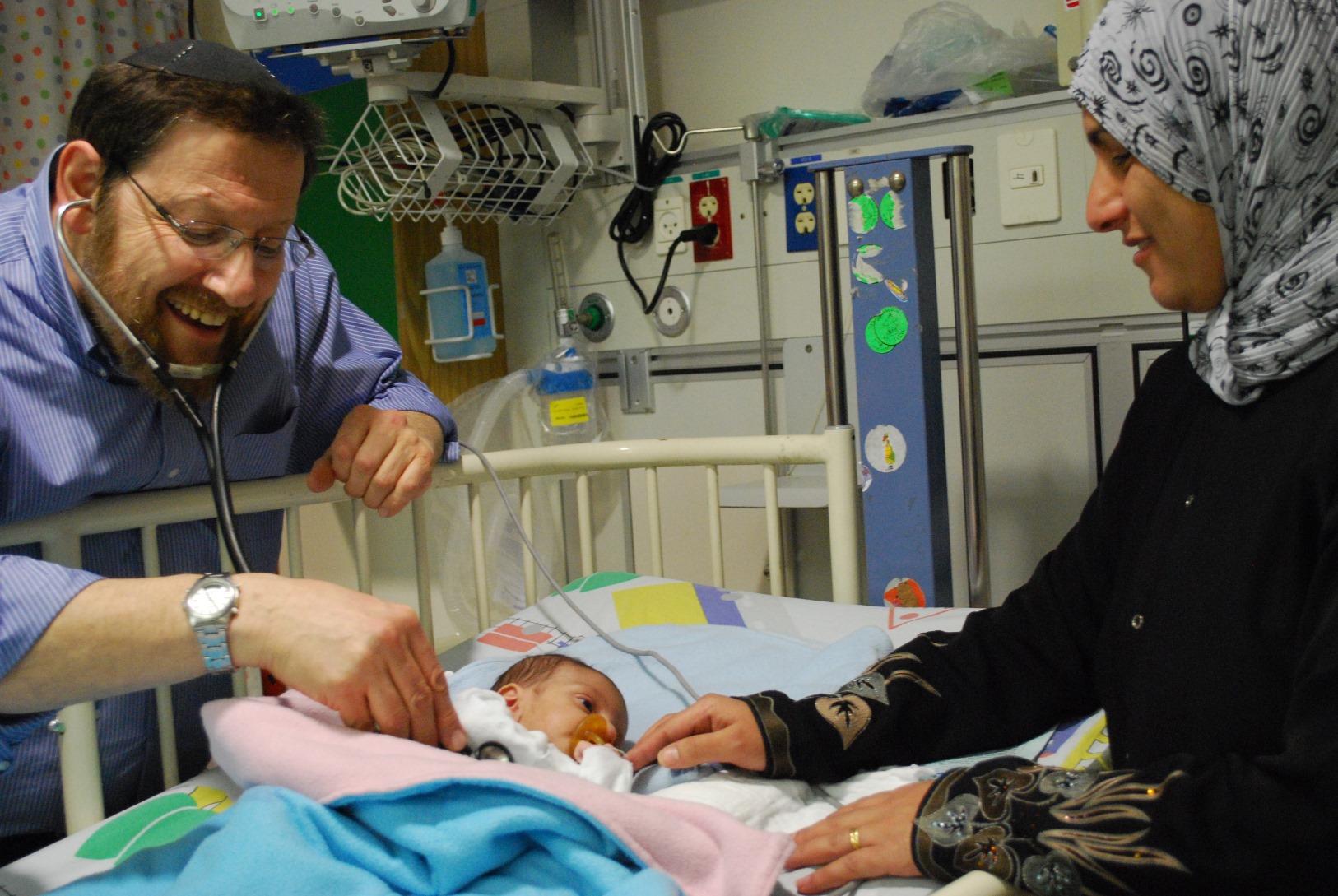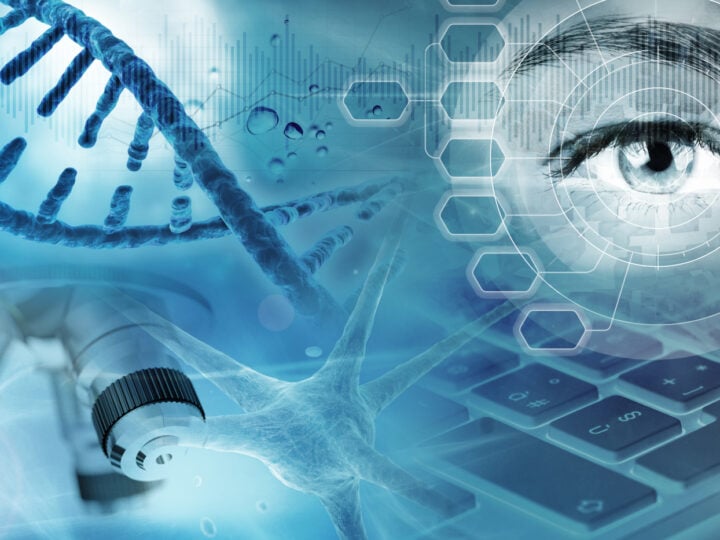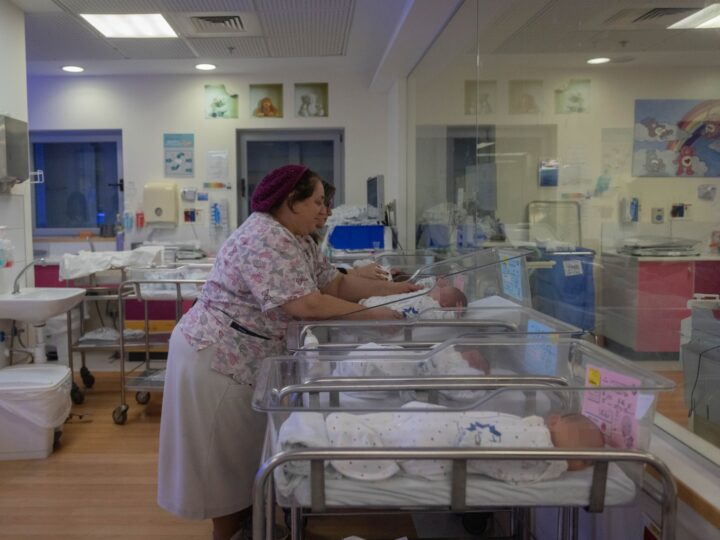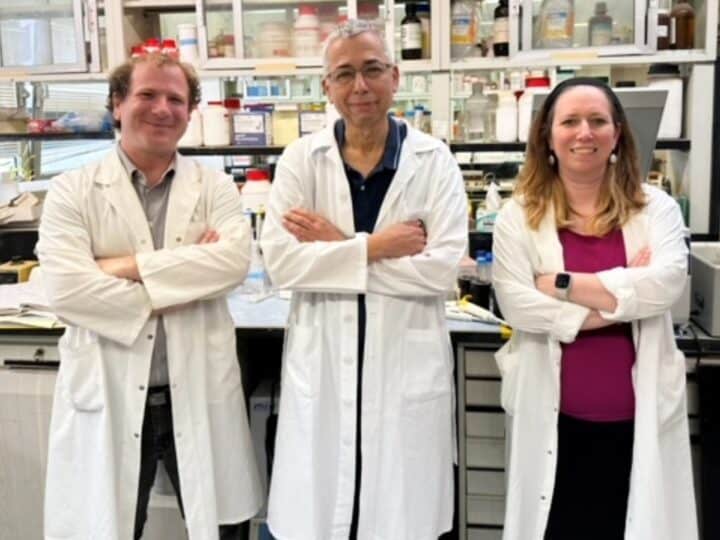Four years ago, a pregnant Palestinian woman from Hebron was referred to Hadassah Medical Center in Jerusalem. The mother suffered from the autoimmune disease lupus. Antibodies in her blood had crossed the placenta, causing heart blockage in her fetus.
“We delivered the baby and implanted a pacemaker immediately. She went home two or three weeks later and she’s healthy,” says Prof. Azaria JJT Rein, head of pediatric cardiology at Hadassah and cofounder of A Heart for Peace, a partnership with Hadassah for the care of Palestinian children suffering from congenital heart diseases.
“We have many similar stories, but this one is especially dramatic,” Rein tells ISRAEL21c.
Since its founding in 2005, A Heart for Peace’s mixed team of Israeli and Palestinian doctors has cared for 607 Palestinian children, 20 percent of them from Gaza and 80% from Palestinian-administered areas of the West Bank.
An apolitical organization, A Heart for Peace has trained five Palestinian doctors to perform echocardiograms and/or catheterizations, 197 general practitioners to do early screenings, one technician each in echocardiography and stress-test and Holter electrocardiography, and one genetic counselor.
The need for genetic counseling is an essential preventative measure because one out of every two Arab marriages is consanguineous, causing a rate of congenital heart malformations three times higher than in the general population.
Half the cost of every hospitalization is borne by the medical center and half by the organization, which is incorporated in France. On average, each child’s bill comes to about $15,000.
Nobody to take care of them
Rein explains the need for the program ironically resulted from the Oslo Accords signed by the government of Israel and the Palestine Liberation Organization in 1993. Until the accord put many Arab areas of the West Bank under Palestinian control with military checkpoints at the borders, Hadassah took care of West Bank Arab children with funding from humanitarian organizations and sometimes even from the Israel Defense Forces.
“But after Oslo there was nobody to take care of them anymore, so we tried to find a way,” says Rein, who moved to Israel from France in 1968 and trained in his specialty at Harvard University.
A Heart for Peace took shape at the initiative of another French immigrant physician, Dr. Muriel Haim.
“Every child has the right to care, and when I heard from Prof. Rein in 2005 that many Palestinian children suffering from congenital cardiopathy were dying because they had no access to heart surgery in the West Bank, I decided in cooperation with him and Hadassah to provide cardiac surgery for those children. It is as simple as that,” Haim tells ISRAEL21c.
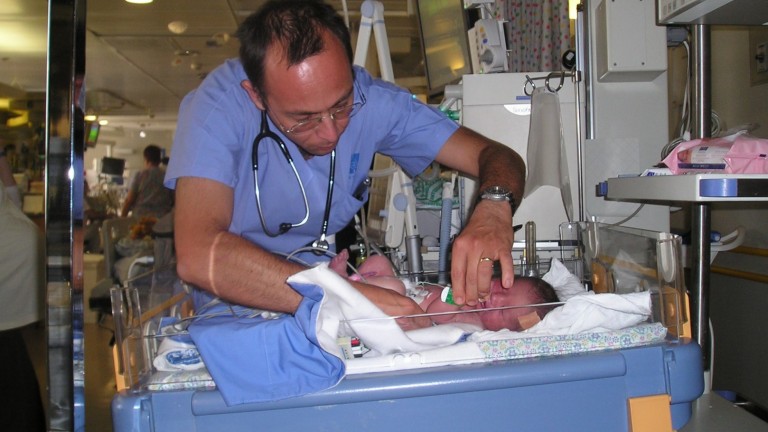
In cooperation with Palestinian-run hospitals and health clinics, as well as the United Nations, A Heart for Peace began by arranging to take one child per week. The number and scope quickly grew much larger.
The system is set up so that medical personnel in Gaza or the West Bank can consult with Rein and his team about children who may need advanced cardiac care. They share data over mobile applications like WhatsApp.
‘Thank you with all our heart’
If transfer is indicated, paperwork is filed with the Palestinian and Israeli authorities to allow passage for the child and caregiver (usually the mother or grandmother) to Hadassah or sometimes to the children’s hospital at Sheba Tel Hashomer Medical Center or to Makassed Islamic Hospital in Jerusalem. From the Israeli border, ambulance transport is handled by Magen David Adom, the Israeli Red Cross.
No child has ever been prevented from coming for treatment, says Haim, and in case of extreme emergency the transfer can be accomplished within two and a half hours.
Some patients, like the Gazan newborn mentioned above, start life in Hadassah because of conditions detected in utero. Saleh, for example, had his first heart surgery at birth in 2013 and came back to Hadassah a few months later for a nine-hour operation.
Saleh is now a healthy preschooler. His parents bring him for regular checkups to a pediatric cardiology clinic in Ramallah that was established by A Heart for Peace in 2012 and is now managed independently by Palestinians trained by the organization. This year, A Heart for Peace opened a pediatric cardiology clinic in Hebron, also hoped to become autonomous.
Saleh’s parents sent a letter of appreciation to A Heart for Peace. “Thanks to you, our life shines every day. Thank you for the hope you gave us. We thank you with all our heart for what you have done for us and for all that you do for all the other unhappy families such as ours,” they wrote.
Rein explains that many Arab families suspect that if they go to an Israeli hospital they will be killed for their harvestable organs. “There are at least 600 families who look at us now not as ‘bad Israelis’ but as people who did something good for them,” he says. “Maybe they don’t love us, but they are not afraid of us.”
Haim agrees: “Ten years on, peace has not yet been achieved, but these children are the living proof that cooperation does exist between Israeli and Palestinian doctors in Jerusalem and the West Bank. This cooperation continues to surprise the numerous visitors, both politicians and journalists, who come to discover peace in Hadassah Hospital in Jerusalem.”
The only common enemy is heart disease
A Heart for Peace also provides mobile equipment for diagnosis and post-op care in the territories. Screenings for heart malformations take place twice a week in the West Bank, and educational presentations are offered to Palestinian families in an effort to reduce the risk of congenital cardiopathology.
“The beneficiaries are not only the children, the women and the Palestinian families, as well as the trained doctors, but also the Israeli and Palestinian people who get to know each other better,” say Haim.
Rein says the seven Israeli and two Palestinian participating doctors enjoy warm relationships during and after work hours. The only common enemy, he says, is heart disease.
For more information, click here.
Fighting for Israel's truth
We cover what makes life in Israel so special — it's people. A non-profit organization, ISRAEL21c's team of journalists are committed to telling stories that humanize Israelis and show their positive impact on our world. You can bring these stories to life by making a donation of $6/month.





